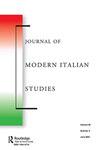意大利自由党与第一共和国危机。长期分析(1968-1994)
IF 0.7
3区 历史学
Q1 HISTORY
引用次数: 0
摘要
P.L.I.与意大利政党制度崩溃之间的关系呈现出利益因素。与群众党不同,人民党察觉到了一些危机因素:统治阶级与公民的距离越来越远,公共债务增加,政治中不良行为的传播,需要进行大规模的制度改革,新政治主体(联盟)的发展——这些都是内部辩论中广泛讨论的问题。你注意到的是,一个政党的处境非常艰难,它不想在那里,参与政府,但希望远离政府。尽管国际形势有利(苏联制度的崩溃、撒切尔主义、里根主义),但与其性质和意识形态文化特征相关的因素,以及其特定的历史,在普林帝国的“终结”中发挥了作用。本文从马拉戈迪反对中左翼政府时期开始,对人民解放军的政治抛物线进行了重构。据信,这可能有助于确定在完全改变的情况下无法将自己强加为有效政治提案的原因。本文章由计算机程序翻译,如有差异,请以英文原文为准。
The Italian Liberal Party and the crisis of the First Republic. A long-term analysis (1968-1994)
ABSTRACT The relationship between P.L.I. and the collapse of the party system in Italy presents elements of interest. Unlike the mass parties, the Pli perceived some crisis factors: the ever-increasing distance of the ruling class from citizens, the increase in public debt, the spread of bad practices in politics, the need for a big institutional reform, the growth of new political subjects (Leagues) they were issues widely addressed in the internal debate. What you notice is a very difficult situation of a party that is where it doesn’t want to be, that participates in the government but would like to stay out of it. 1 Despite a timid growth of consensus at the beginning of the crisis, just as a result of an effort to differentiate itself from the other government forces, the Pli was unable to escape the “Grande Slavina”. Factors related to its nature and its ideological-cultural identity, but also to its particular history, played a role on the “end” of the Pli, in spite of a favorable international situation (collapse of the Soviet system, Thatcherism, Reaganism). The essay proposes a reconstruction of the political parabola of the P.L.I. starting from the period following Malagodi’s opposition to the center-left governments. It is believed that this may serve to identify the reasons for the inability to impose itself as a valid political proposal in a completely changed scenario.
求助全文
通过发布文献求助,成功后即可免费获取论文全文。
去求助
来源期刊

Journal of Modern Italian Studies
Multiple-
CiteScore
1.00
自引率
25.00%
发文量
66
期刊介绍:
The Journal of Modern Italian Studies (JMIS) is the leading English language forum for debate and discussion on modern Italy. This peer-reviewed journal publishes five issues a year, each containing scholarly articles, book reviews and review essays relating to the political, economic, cultural, and social history of modern Italy from 1700 to the present. Many issues are thematically organized and the JMIS is especially committed to promoting the study of modern and contemporary Italy in international and comparative contexts. As well as specialists and researchers, the JMIS addresses teachers, educators and all those with an interest in contemporary Italy and its history.
 求助内容:
求助内容: 应助结果提醒方式:
应助结果提醒方式:


